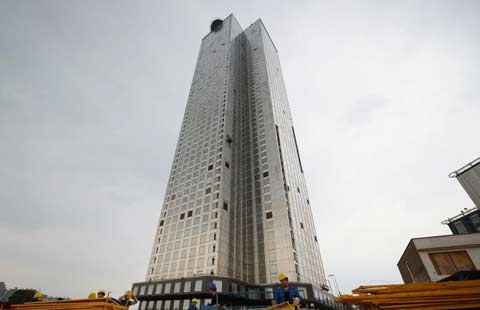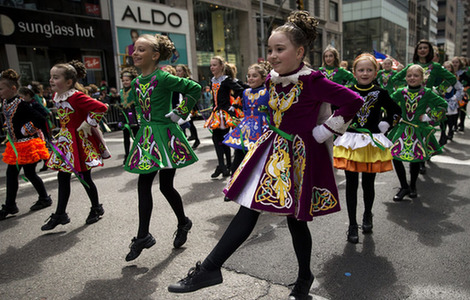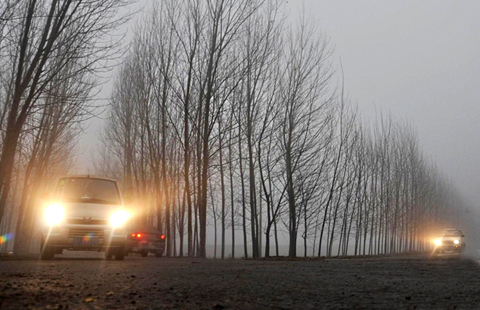Legislators fined for raising tigers
Updated: 2015-03-18 16:09
By Liu Jing(chinadaily.com.cn)
|
||||||||
 |
|
Siberian tiger cubs are seen at a zoo in Shiyan City, central China's Hubei Province, June 10, 2014. The tiger cubs were born on May 2. [Photo/Xinhua] |
Three deputies to the municipal People's Congress in Qingdao city, Shandong province have each been fined 3,000 yuan ($481) for illegally raising eight Siberian tigers, the Beijing News reported on Wednesday.
The punishment followed one of the animals leaping to its death from a building in Pingdu in Qingdao city, Shandong province, spooked by firecrackers on the eve of Chinese Lunar New Year.
The seven-month-old cub had been raised by Yang Wenzheng, a deputy to Qingdao People's Congress.
Yang said he was asked to raise two cubs for a friend running a local scenic spot which kept eight tigers illegally. A further four were sent to a forest farm due to financial difficulties.
The owners of the scenic spot and forest farm are both deputies of Qingdao People's Congress.
Yang resigned following the tiger's death and the remaining felines have been confiscated.
The Siberian tiger mainly inhabits northeastern China, especially Jilin province, Russia's Far East and the Korean Peninsula. The species is only estimated to number 500 worldwide while Jilin puts its population of wild Siberian tigers at 27.
Tigers are under State protection in China and individuals are not allowed to keep or breed them.
Last year, a Siberian tiger smuggler was sentenced to seven-and-a-half years in prison by a court in Zhejiang province for illegally purchasing an endangered species.
A man in Guangxi Zhuang autonomous region was sentenced to 13 years for buying and eating three tigers.
China banned the trade in tiger products in 1993 but demand remains high in the black market.
The skin, teeth, bones and claws of a Bengal or Sumatran tiger are priced at about 500,000 yuan ($80,169). The figure reaches more than one million yuan for a Siberian tiger.
Tiger products in the black market largely come from dead animals or cubs from zoos, said Xie Yan, an expert in wildlife protection, adding that the transportation, mating and breeding of tigers in zoos is tracked by China's forestry authority. The cubs of unregisted Siberian tigers face a high risk of being trafficked in the black market.
Most Viewed
Editor's Picks

|

|

|

|

|

|
Today's Top News
Skyscraper built in 19 days
Xi recognizes Kissinger as 'trailblazer'
Huayi Brothers clinches films deal
Rising steel imports spur calls for action in Washington
China paying more attention to corporate governance
President Xi sees Harvard head
US easily top exporter of arms; China No. 3, but imports dive
Huayi Brothers Media Corp clinches US films deal
US Weekly

|

|















